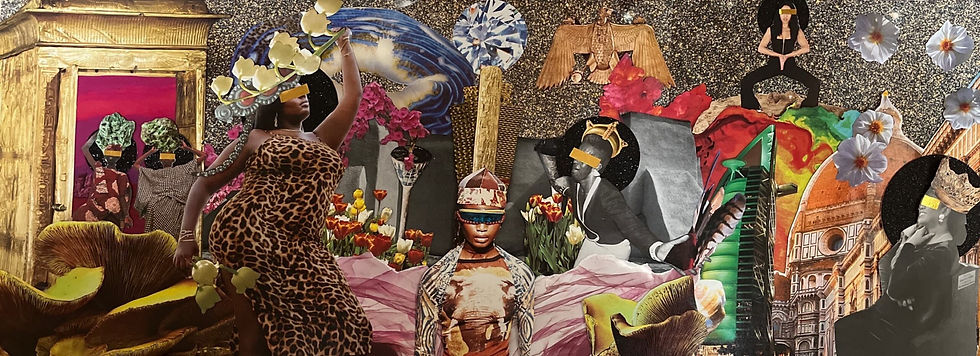Black Utopia: Circles of Care, Futures of Freedom
- Gen Fab Staff

- Oct 8, 2025
- 3 min read
At the Gender Health Center, Black kin are creating a sanctuary of care, and a vision for tomorrow.

America is noisy with crisis and short on mercy, yet we carry a different assignment: build a world where Black people do more than survive. Call it Black utopia if you want; what matters is the work. It replaces scarcity with sufficiency, humiliation with dignity, and spectacle with systems that meet needs without asking us to shrink.
This vision is not an escape from reality. It is a plan for health, housing, safety, learning, and livelihood that treats care as a right. In a sane system, Black mothers are not three times more likely to die around childbirth and Black trans women are met with affirming care on time, every time. Clinics are rooted in culture, birthworkers and midwives are funded, therapy is free and on the block, and gender-affirming care is standard practice rather than a special request. When health is handled, possibility opens.
Housing is medicine, so keys and leases come before lectures. We already know what happens when Black trans women have safe rooms and steady support; harm drops and hope returns. Cities can seed land trusts and community-owned buildings, move cash to tenants, and treat eviction prevention like the emergency response it is. Pair housing with income, legal help, and peer mentorship, and corners stop being the only option.

Safety must be measured by presence, not just the absence of pain. That looks like crisis teams that de-escalate without cuffs, well-lit streets that feel like home, fridges that stay stocked, and youth spaces open late with art, elders, and paid gigs. The point is not to police life but to make life worth protecting. Belonging does more than a siren ever could; it rewires what is possible.
Organizing is the bridge from dream to blueprint. Movement elders have told us for years that imagination is the front door to policy, and that all organizing is a kind of world-building. We test ideas in small rooms, study the results, and scale what works. That is how impossibilities become normal: not by waiting for permission, but by practicing the future until it sticks.

Schools and workplaces must stop punishing Black brilliance. Uplift classrooms that affirm our kids’ curiosity, replace suspensions with support, and fund counseling without waitlists. Pay community health workers, peer mentors, artists, and culture keepers like the essential staff they are. Move public dollars into Black-run co-ops, childcare hubs, and apprenticeship pipelines so a living wage is not a miracle but a baseline.
We do not start from zero. Across the country, community-defined methods are already saving lives, and the smartest programs measure success with both numbers and stories. In Sacramento, one circle at the Gender Health Center shows how this begins: Black cis and trans women break bread and trade strategies for safety and joy; Black cis and trans men sit together and talk about manhood without performance; people leave with resources, warm handoffs, and a reason to keep going. The example is small by design, a seed that proves what grows when we center kinship over stigma.
Writers and thinkers have been mapping this terrain for generations. W. E. B. Du Bois imagined futures where Black life rebuilds the world after crisis. Octavia Butler taught that change is the only constant and made survival an art. Robin D. G. Kelley insists that vision sets the target for what we build, while Alex Zamalin traces a tradition that treats justice as everyday practice rather than perfection on an island. Read them as memory and direction; they remind us that the blueprint is not new, only waiting on scale.
Here is a practical list that travels well: fund keys, clinics, cash, and counseling; back Black-run institutions and measure stability, joy, and longevity, not just throughput; make spaces where Black cis and trans kin meet as family, move resources like water, and resolve harm with repair; teach the next generation that love is a verb and align policy with that ethic. None of this is abstract. It is budgets, schedules, job descriptions, leases, and hands on deck.

Black utopia is not a mirage or a marketing slogan. It is a discipline that says everyone eats, no one is disposable, and joy is not rationed. We build it by choosing each other, resourcing what already works, and scaling care until it is ordinary. Bring your skill, bring your budget, bring your block; the future we deserve is not far away, it is already taking shape wherever Black cis and trans kin gather and refuse to leave one another behind.





Comments